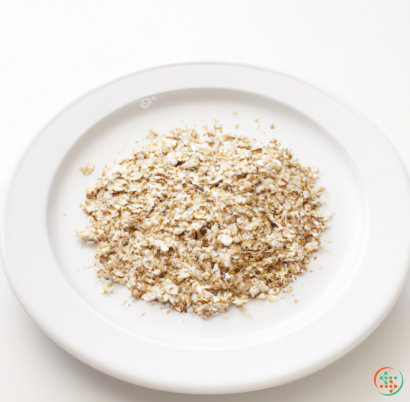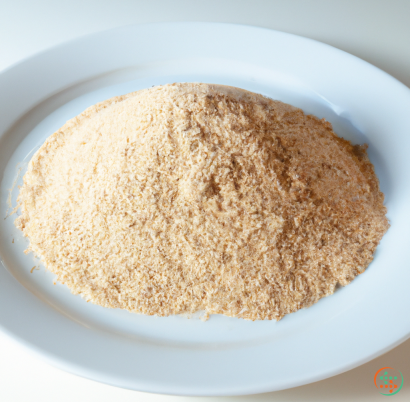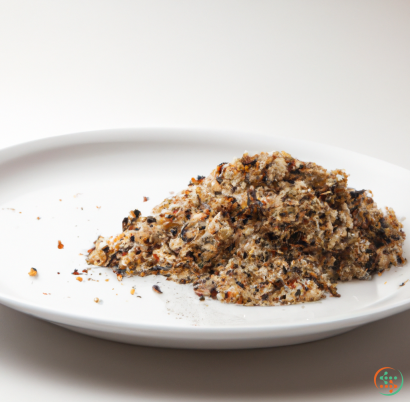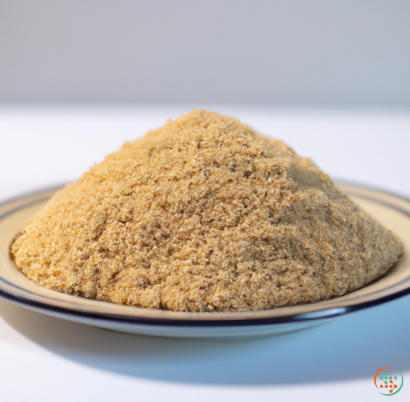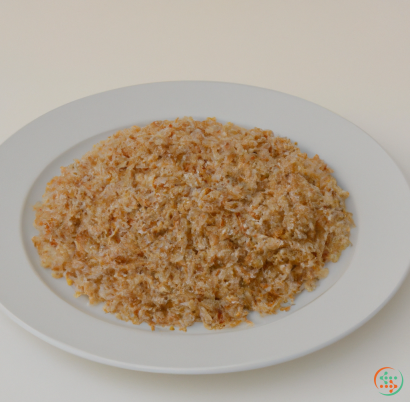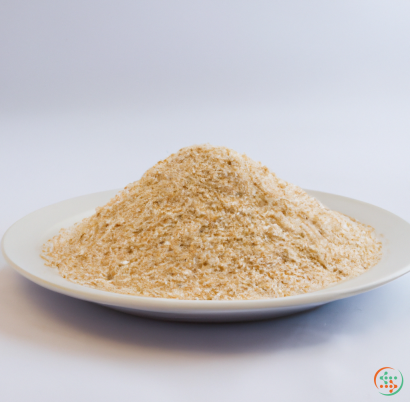Sprouted Grain Bread
and why it is a better choice for Bread
As one of the most popular staples in our diets, bread has been a source of sustenance and comfort for thousands of years. But, not all bread is created equal. Sprouted grain bread is the latest health craze that is quickly catching on with health-conscious foodies looking for something more than just your regular white or whole wheat bread.
Sprouted grains are grains that are allowed to sprout, meaning they are soaked and allowed to germinate before they are ground into flour and baked into bread. As they sprout, the grains undergo enzymatic processes which make them healthier in comparison to grains that are simply milled and ground into flour. These modifications to the grain give sprouted grain bread unique qualities and health benefits that regular grain breads don't have.
For starters, sprouted grain bread has more vitamins, minerals, and enzymes than regular grain breads. The enzymatic process that occurs during the sprouting of the grain causes the nutritional contents of the grain to become more available and easier for the body to digest. It also boosts the nutrient content of the grains, making them richer in B vitamins, dietary fiber, essential fatty acids, and proteins.
In addition to the beneficial change in nutrition content, sprouted grain bread also has a lower glycemic index than regular grain breads. The glycemic index is an indicator of how different foods affect blood sugar. Sprouted grain bread is much lower on the glycemic index than other grain breads, meaning it won't cause a spike in your blood sugar as quickly as regular grain breads. This can be especially beneficial for people who need to keep their blood sugar levels in check or those who want to reduce the potential negative side effects of eating processed carbs.
The number one benefit of sprouted grain bread is its increased digestibility. When grains are allowed to germinate, or sprout, certain enzymes are activated that break down carbohydrates and proteins, making the end-product easier to digest. This is especially beneficial for those with digestive issues, as it can help to reduce symptoms associated with various digestive disorders. Studies have also shown that sprouted grains help to support a healthy gut microbiome, helping to protect and nourish the natural bacteria in our digestive systems.
One of the biggest benefits of sprouted grain bread is that it is easier to digest, and it also tastes much better than regular grain breads. Sprouted grain bread has a much softer texture and sweeter flavor, and can often be enjoyed with less topping or butter than regular grain bread.
Overall, sprouted grain bread is the healthiest option when it comes to choosing grain breads. Its higher nutrient content, lower glycemic index, and improved digestibility can be beneficial to everyone, regardless of diet or health goals. For those looking to make a positive, healthy change to their diet without sacrificing taste or flavor, sprouted grain bread may just be the ticket.
Sprouted grain bread is gaining in popularity due to its numerous health benefits. Unlike traditional bread, which is made with milled wheat, rye, or other grains, sprouted grain bread is made from whole, sprouted grains. To understand the process of how sprouted grain bread gets to the dinner plate, it’s important to understand what sprouted grains are and how they’re processed before they’re made into bread.
To create sprouted grain bread, the grains used to produce it must first be sprouted. Sprouting is the process of soaking grains, like wheat and rye, in water until they begin to germinate and grow. Sprouting is essentially the process of taking dormant, dried seeds and allowing them to come alive. In order for the end product of sprouted grain bread to be of superior quality, the core of the seed must be allowed to begin the sprouting process without being broken. Once the sprouts are established, they are dried and milled into a flour that can be used for baking.
The sprouting process begins with a soak in water, typically for about seven hours, when the water is changed every two hours. During this time, the seed will absorb moisture and ultimately begin the process of germination. This germination is controlled, as the grain can’t be allowed to grow too much during this time. After the soak, the grain is drained, rinsed, and placed in a warm environment. This warm environment will allow the grain to sprout. If conditions are too warm, the sprout can become overdeveloped. The warm environment needs to have the right balance of warmth and moisture in order for the sprouts to stay alive.
After the sprouting process is complete, the grains are then dried and milled into the flour that makes up the basis of sprouted grain bread. Drying the grains is done either by leaving them in room temperature for up to 24 hours or using a low temperature oven. There two reasons for drying the sprouts: to reduce the moisture content to allow for commercial packing and also to improve shelf-life.
The grains are milled into the flour for sprouted grain bread, using stone grinders or hammer mills. Stone grinders are preferred, as they break the grains into pieces gently and preserve the bran, which contains many of the beneficial nutrients found in the grain. Hammer mills, on the other hand, will break apart all parts of the grain, including the bran, which significantly reduces the nutritional content.
Once the flour is milled, it’s ready to be turned into sprouted grain bread. Depending on the recipe and method used, some additives such as yeast, salt, fat, and various other grains and seeds are added to the flour before it’s kneaded into dough. After the dough is kneaded, it’s often times left to rise. This rise can take up to 24 hours. After the dough is risen, it's formed into a loaf or shaped into rolls and placed into a preheated oven and baked.
Once the sprouted grain bread is baked, it travels through a variety of distribution channels before it reaches someone’s dinner plate. In most cases, the bread is transported to grocers and retail outlets to be purchased by the consumer. The transportation medium used vary from store to store. For example, a grocery store may ship the bread on a truck, while a bakery may directly transport the bread after baking.
Once the sprouted grain bread is purchased and taken home, the only thing left between it and the dinner table is preparation. There are numerous ways to prepare the bread, such as slicing and toasting. This preparation is then followed by combinations of spreads, toppings, and accompaniments to create a delicious and nutrient-rich meal.
Sprouted grain bread is an increasingly popular option for consumers looking to add more healthful options to their diet while still enjoying the flavor and texture of traditional bread. The journey this bread takes to reach the dinner plate is an involved process. It starts with careful sprouting of the grains, drying, gently grinding and milling, forming, rising, and baking. Then the bread is transported to retail outlets and chosen by the consumer to be prepared and enjoyed as part of a complete meal. By understanding the process of how sprouted grain bread gets to the dinner plate, one has a greater appreciation for the complexity that goes into making this healthful food.
| Beta-Carotene | 0.003 mg | |
| Vitamin E | 0.34 mg | |
| Vitamin K | 0.0011 mg | |
| Vitamin B1 | 0.23 mg | |
| Vitamin B2 | 0.08 mg | |
| Vitamin B3 | 0.00233 grams | |
| Vitamin B4 | 0.0149 grams | |
| Vitamin B6 | 0.19 mg |
| Iron | 0.00189 grams |
Daily Value 0.018 g
|
| Magnesium | 0.066 grams |
Daily Value 0.4 g
|
| Phosphorus | 0.176 grams |
Daily Value 1.25 g
|
| Potassium | 0.198 grams |
Daily Value 4.7 g
|
| Sodium | 0.474 grams |
Daily Value 2.3 g
|
| Zinc | 0.00125 grams |
Daily Value 0.011 g
|
| Copper | 0.21 mg |
Daily Value 0.9 mg
|
| Selenium | 0.03 mg |
Daily Value 0.055 mg
|
| Total Sugars | 2.6 grams |
per 100g
|

